‘They Look Like People’: The Horror of Male Loneliness
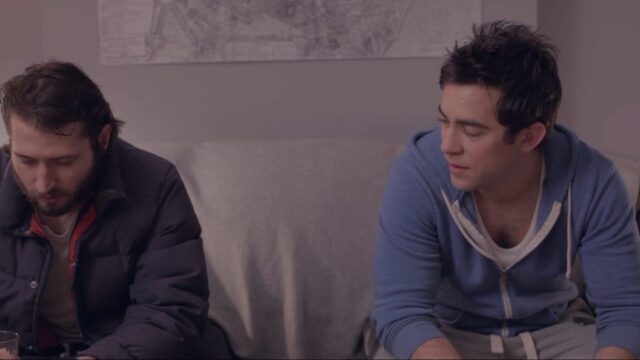
In Perry Blackshear’s extraordinary and criminally overlooked 2015 film They Look Like People, two young men desperately attempt to stave off despair and the terror of relentlessly-encroaching psychic obliteration.
They Look Like People could almost pass for “mumblecore,” considering its brevity (a mere 79 minutes), its emphasis on character-driven, often improvised dialogue, its miniscule budget, and its no-name cast. Yet unlike most mumblecore fare, where the operative aesthetic is the very absence of aesthetic, They Look Like People looks and feels deeply cinematic. It bathes the viewer in fear and dread, through the use of grotesque visuals, frightening sound effects, and ominous voiceovers, creating a sense of rising tension and growing apprehension.
Though They Look Like People came out well before the “male loneliness epidemic” became a cultural touchstone, the film is a startlingly apt harbinger of this social crisis. Its two protagonists, Wyatt (MacLeod Andrews) and Christian (Evan Dumouchel), both lead lives of quiet desperation, albeit in very different ways.
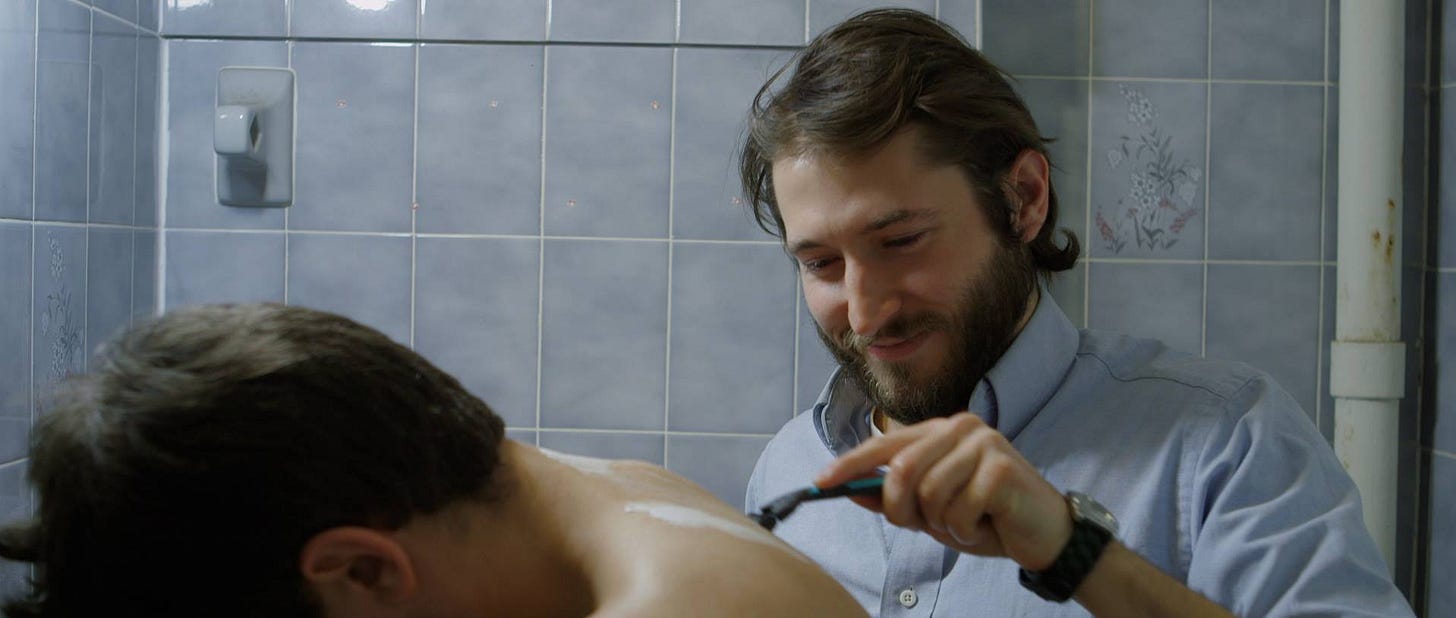
Christian was once engaged to a girl named Kat, who appears to have left him recently. He now lives alone in a tiny city apartment on a desultory, nondescript street and works a dreary, nondescript corporate job. In spite of, or perhaps because of these unfortunate circumstances, Christian has passionately embraced a “self-improvement” ethos, and is determinedly willing himself to be optimistic about his future. He works out at the gym, and regularly listens on headphones to audio segments in which a sensual female voice tells him:
“You are a mountain. You are a hundred miles high. You are invincible. You are forever. You are an ocean. Weapons, swords, and knives all flow through you like nothing. You encompass the entire world in your depth. You are a fire. All that your enemies place in your way— betrayal, lies, poison— you devour and become stronger. You are unstoppable, you are holy, you are terrible.”
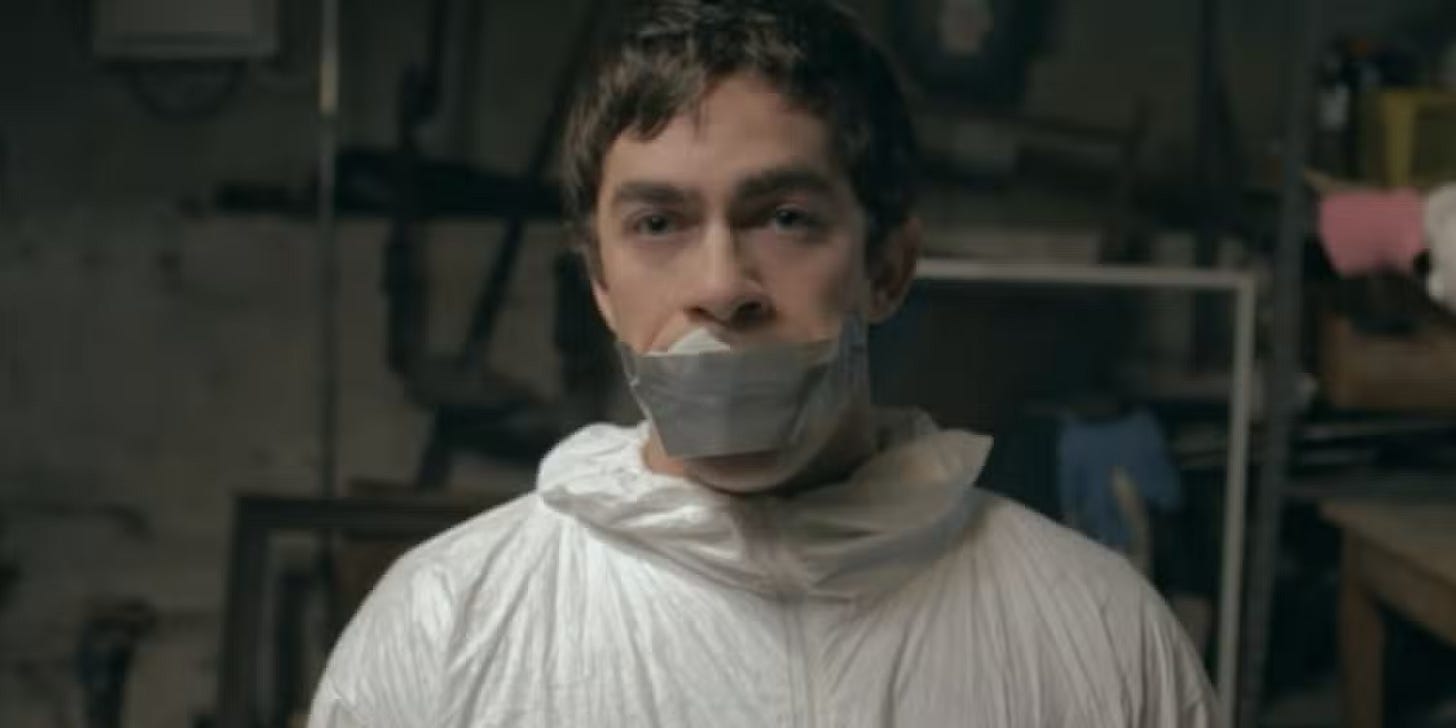
Christian is convinced that he has turned a corner, and become a new man, one who is unafraid to pursue what he wants, one who is truly “dominant.” Yet it is obvious that in many ways, he remains painfully insecure. His efforts to flirt with his attractive work supervisor Mara (Margaret Ying Drake) are often awkward and ineffectual, in spite of Mara’s obvious reciprocity of interest.
Wyatt, on the other hand, faces an even more challenging— one might even say, harrowing— set of circumstances. Like Christian, Wyatt has seen a long-term committed relationship come to a painful end. While it isn’t clear who left whom, Wyatt believes that his ex-girlfriend, Hannah, has transformed into a hideous demon.
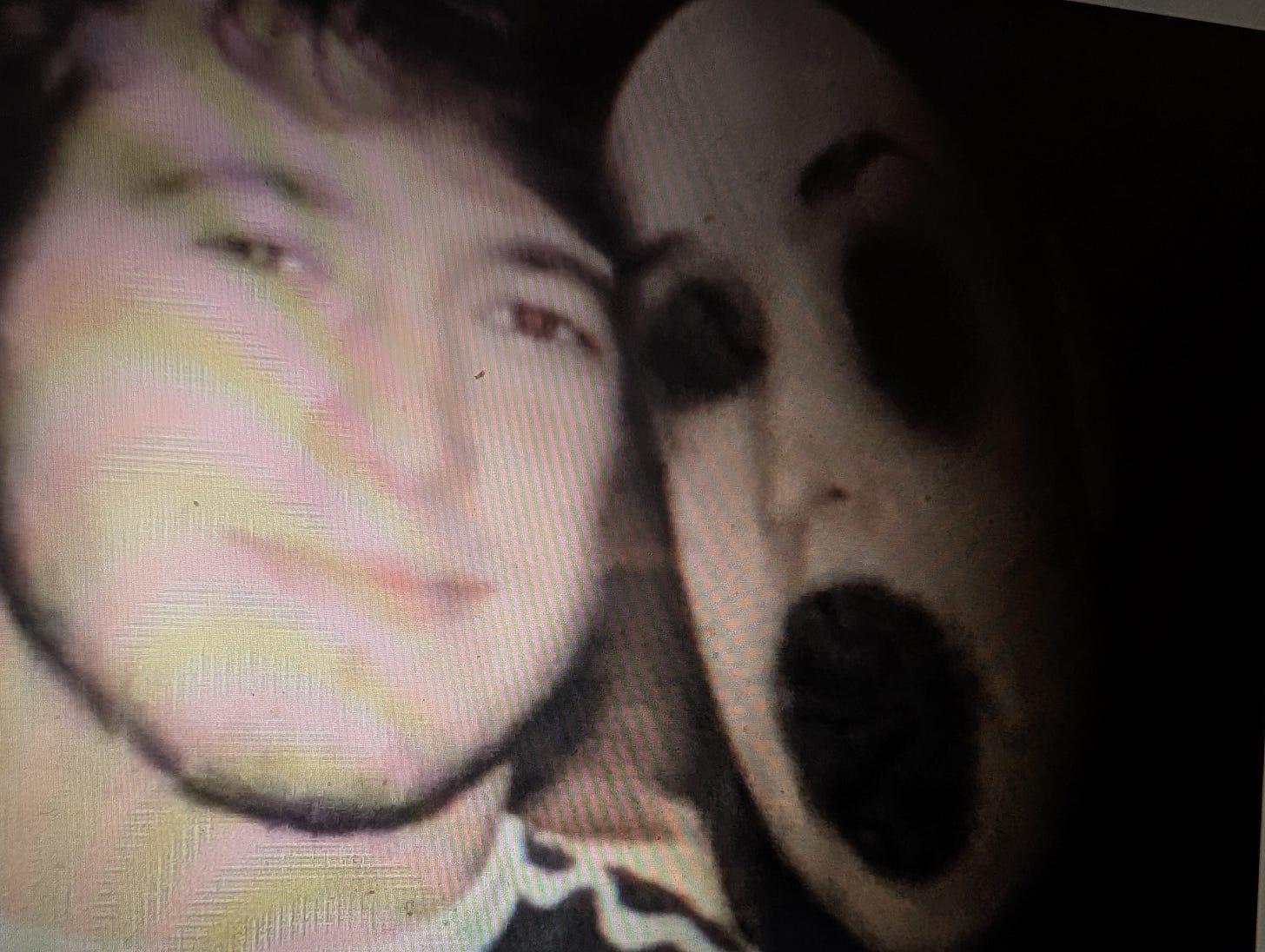
In fact, Wyatt has lately come to the conviction that a broad swath of humanity are being taken over by evil beings bent on humanity’s destruction. Not only has he seen it happen, he is getting terrifying phone calls in the wee hours of the morning, in which voices are warning him that the situation has grown dire indeed:
“Trust no one. Trust was no longer an option, once we discovered them. They were at Jericho. They surrounded the temple of Solomon. They were at Golgotha. They were once few, now they are everywhere. Their disguises have begun to fail; this is how we know they must strike soon. Even before you were one of the blessed, who could sense them, you knew they were out there. Suddenly they were right next to you. That is not a soldier with a gun, that is evil. That is not your co-worker, that is a demon. That is not a human, not a neighbor, not a lover, a brother, a mother, a father, a wife. That is a monster. That is your enemy. And that is what you must be ready to destroy.”

(Note: though many reviewers have assumed that Wyatt suffers from schizophrenia, it is important to note that the film never conclusively weighs in on whether his disturbing visions are hallucinatory or real.)
The ominous voiceover heard by Wyatt parallels, both in tone and treble, the hypnotic self-affirmations that Christian hears. Both men are enraptured by the voices that fill their minds; both are obsessed with the “mission” that each has been given. Though Christian is attempting the achievement of domestic dreams (“dominating” at work, finding a wife, having children), Wyatt is preparing for the commencement of all-out apocalyptic mayhem, but both are locked into their own private worlds… until the two men unexpectedly run into one another.
********************
By coincidence, or perhaps providentially, Christian one day sees Wyatt walking down a street near Christian’s apartment, and rushes up to greet him warmly. The two, we soon discover, are pals from boyhood, though they have been out of touch for a while. Wyatt is uncomfortable at first— he has only come to the city to see if a doctor he knows could possibly help with his condition— but he eventually agrees to spend a few days with his old friend.
After Wyatt accompanies Christian on an awkward would-be double date gone wrong, the two manage to reform their old bond. One night they hang out together, drinking, goofing off, and reenacting silly, long-forgotten childhood games. We begin to perceive that these two men share a deeply-rooted bond.
These moments of humor and levity, strangely, don’t seem out of place or tonally jarring, even in a movie that’s mostly a slow descent into deepening disquietude and alienation; in fact, Christian and Wyatt’s willingness to trust one another in spite of everything they think they know to the contrary, is what ultimately redeems the film’s otherwise grim proceedings.
*****************
Disaster eventually strikes for both protagonists. For Wyatt, of course, it has long been a foregone conclusion that the end is nigh; he has been preparing for such an eventuality for a while. Christian, however, is caught utterly by surprise when his professional life suddenly implodes, for mysterious reasons which are never made clear to him. Given that he has been optimistically projecting a ever-improving future for himself, Christian finds himself reeling on the ropes, like a prizefighter who has been sucker-punched.
Wyatt, meanwhile, is feverishly plotting how to respond to the start of open battle between the demon-parasite race and what remains of humanity. Over the last few days, he has witnessed numerous people, all of whom he thought he could trust, metamorphosing horrifically into monstrous entities. Now he fears the same thing happening to his boyhood friend, Christian, the one person in his life with whom he still feels a bond.
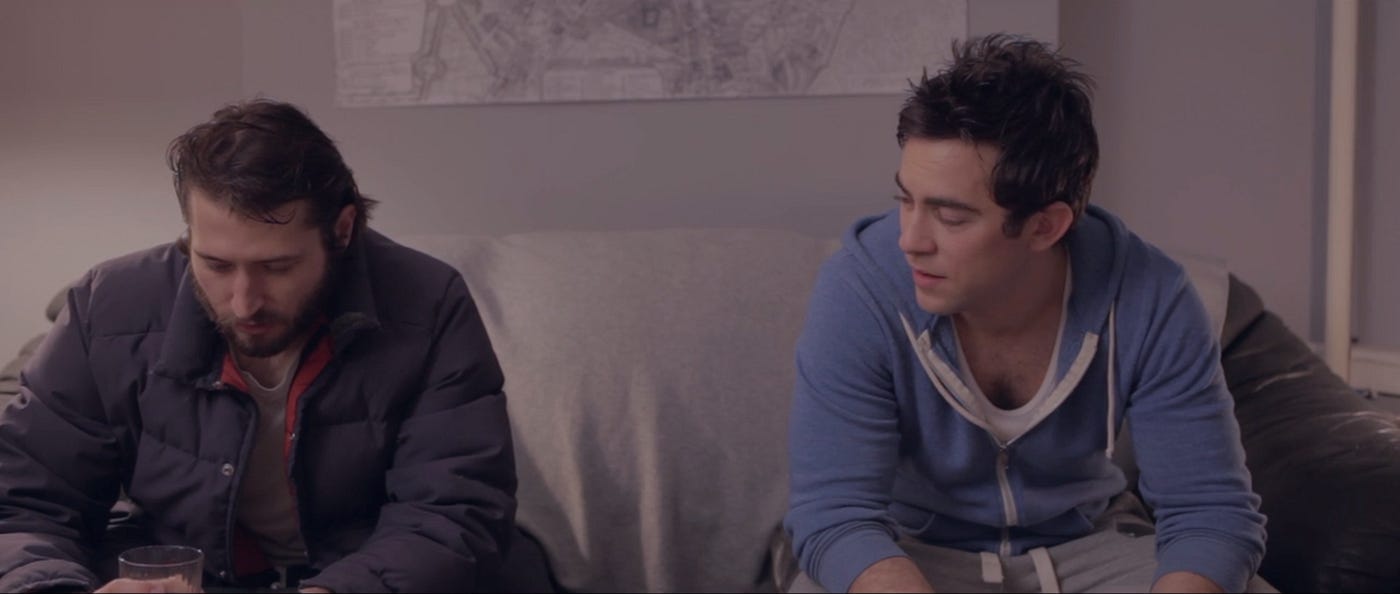
In the film’s final moments, the so recently demoralized Christian opts to put his faith in Wyatt, even though the latter seems increasingly unstable and his claims sound incredible. Wyatt, too, opts to have faith in Christian, even though everything he has experienced tells him to give up on his friend and consign him to oblivion.
It is a triumphant moment for both men, and a victory for humanity.
**************************
They Look Like People is almost impossible to categorize, genre-wise. It is equal parts horror, sci-fi, and paranoid thriller, with a bit of dark comedy thrown in for good measure. Though its “body snatchers” storyline is intense and riveting, the film is most moving in its depiction of Wyatt and Christian’s friendship, which endures against seemingly impossible odds, and redeems a lost, broken, despair-soaked world.
https://andynowicki.substack.com/p/they-look-like-people-the-horror
